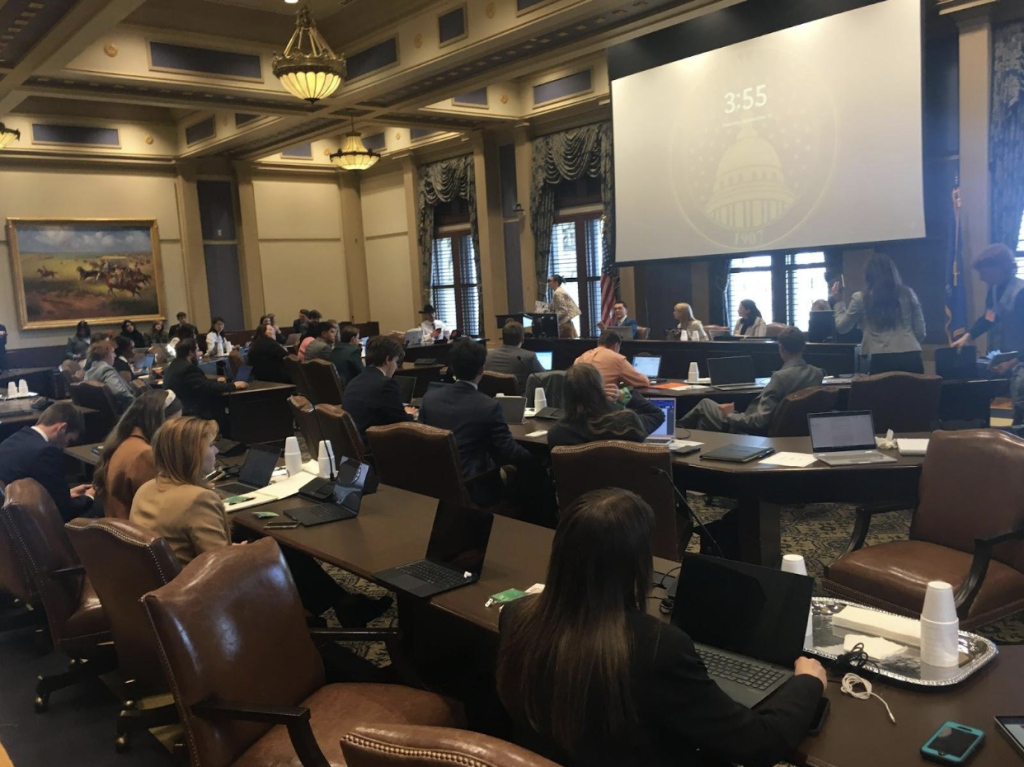By: Journalist Christopher Ungaro (TU)

On Saturday, SNU-504 passed through the House despite some senators having concerns regarding the sources of funding it uses.
The bill mandates schools provide at least one free meal per day to its students, and its benevolent intentions provided it with a level of support among all delegates. That support was enough to overcome concerns about its funding.
The ambiguity of the bill also served to its advantage, as it meant there was no specific funding source to critique. Among some representatives, this battle between concern and support led to decisions that they partially doubted.
Such a representative was Rep. Andrew Mallory, who said, “My initial impression of the bill was I actually really like the bill. Whether or not… you leaned right or left, it was just providing students with free lunches, that’s important… the funding mechanism was kind of a concern considering that there was not a clear point of where the funding was coming from, but at the same time… there was no increase in tax.”
For other senators, however, the bill’s ambiguous funding source left the bill open to attacks rooted in the general lack of funding for the Department of Education, who funding the bill would ultimately be pulling from.
Rep. Connor Walcher brought up this argument, stating, “It had some great intentions of course. I think I did vote no on this bill, and the reasoning being there is no funding part on here. They are expecting the department of education to come up with funds for each school to provide for a kid one free meal a day, and my problem was I do not think our current department of education has enough money to currently do that.”
Other representatives, however, had greater confidence in the bill. To them, by pulling from a larger and more ambiguous source of funding, the bill had achieved a flexibility that it needed to achieve its broad goal.
Rep. Osei Isaiah said, “I loved the bill. I think that it did a great job aligning a needed problem at this moment: students need to be able to eat whether they have the economics in their family or not… I think that the funding was done very well with being able to find grants within Title 4 in Oklahoma statutory legislation and all that kind of stuff, and I think that the representative did an amazing job putting the bill together and I am glad I voted yes for it.”
Now, this bill will likely have to face these concerns again as it is considered by the Senate.
